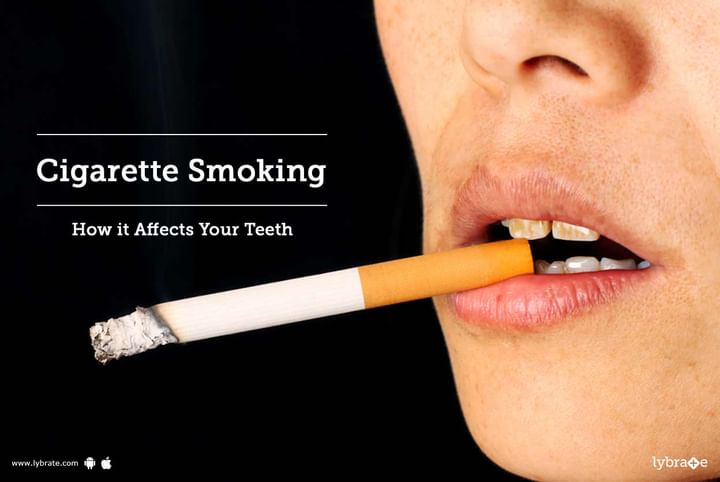Cigarette Smoking - How it Affects Your Teeth
‘Smoking is injurious to health’, is a caption that is flashed on all cigarette packets. However, what is not told about is their adverse effects on the mouth. The mouth with the lips, teeth, and gums are not just the first points of contact for a cigarette but also one of the majorly affected parts.
Listed below are how smoking affects the teeth and the mouth at large.
-
Bad breath (halitosis)
-
Tooth discoloration (brown to black spotting)
-
Tobacco deposits on the teeth leading to irritation of the gums
-
Increased formation of plaque and tartar on the teeth, leading to significant gum disease
-
Gum disease leads to tooth loss
-
Increased jaw bone loss
-
Lower success rate of dental implant procedures
-
Delayed healing after any oral procedure including extraction, periodontal treatment, or oral surgery
-
Increased risk of leukoplakia, white patches inside the mouth, which is a precursor to oral cancer
-
Increased risk of developing oral cancer
-
Reduces blood flow to the gums, thereby affecting healing
The tiny tobacco deposits sit on the tooth surface and with time, produce brownish stains. These are a constant source of irritation for the gums, causing gum disease. Unlike the regular plaque caused by food, this is much harder and more abrasive on the gums. This leads to damage of the periodontal tissue, which are connecting fibers between the teeth and the gums. This leads to gradual tooth mobility and eventually loss.
Correlation: If you are a smoker,
-
You are at risk for gum disease twice compared to a nonsmoker.
-
More cigarettes you smoke, greater the risk for gum disease.
-
More number of years you smoke, greater the risk for gum disease.
-
Poor response to regular treatment for gum disease.
Management: The gum disease can eventually lead to tooth loss. Therefore, the gums need to be protected at all cost to maintain oral health. Some things to do are listed below, starting from the seemingly innocuous to the severe infections.
-
Regular cleanings at your dentist's office once in 6 months
-
Daily brushing and flossing to manage early gum disease
-
Deep cleaning below the gum line and prescription mouth rinses if there is already existing gum inflammation
-
Surgery to remove deeply seated plaque and tartar.
-
Surgery with bone graft to replace the bone lost to periodontitis.
-
Most important of all, quitting smoking. This will produce remarkable benefits when the above are followed.
However, if the above are done with continued smoking, the effects will not last long.
Cigarette smoking is one habit, which has way too many effects on way too many working’s of the body and therefore kicking the habit is the best way to manage, not just your teeth, but your overall health.



+1.svg)
